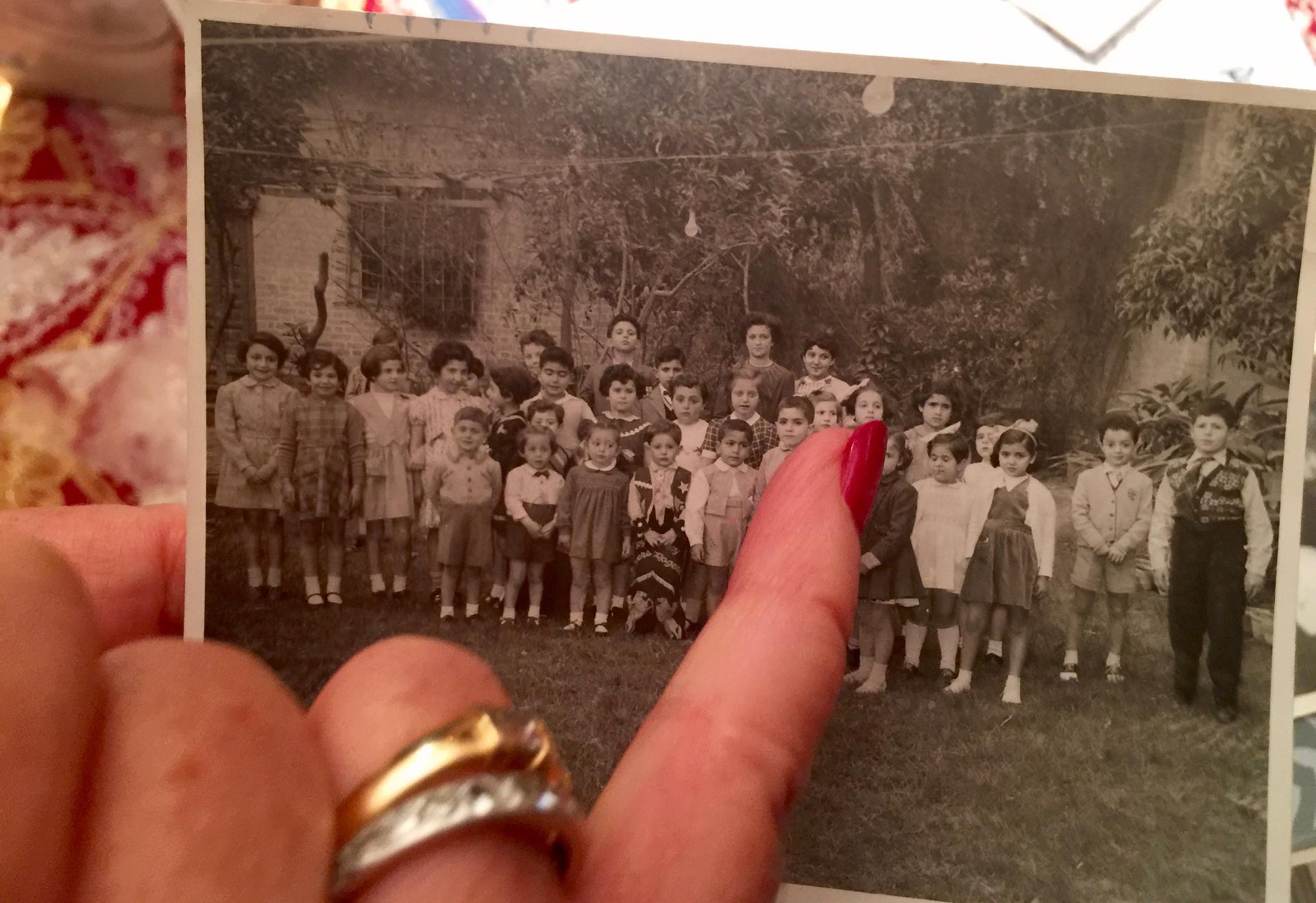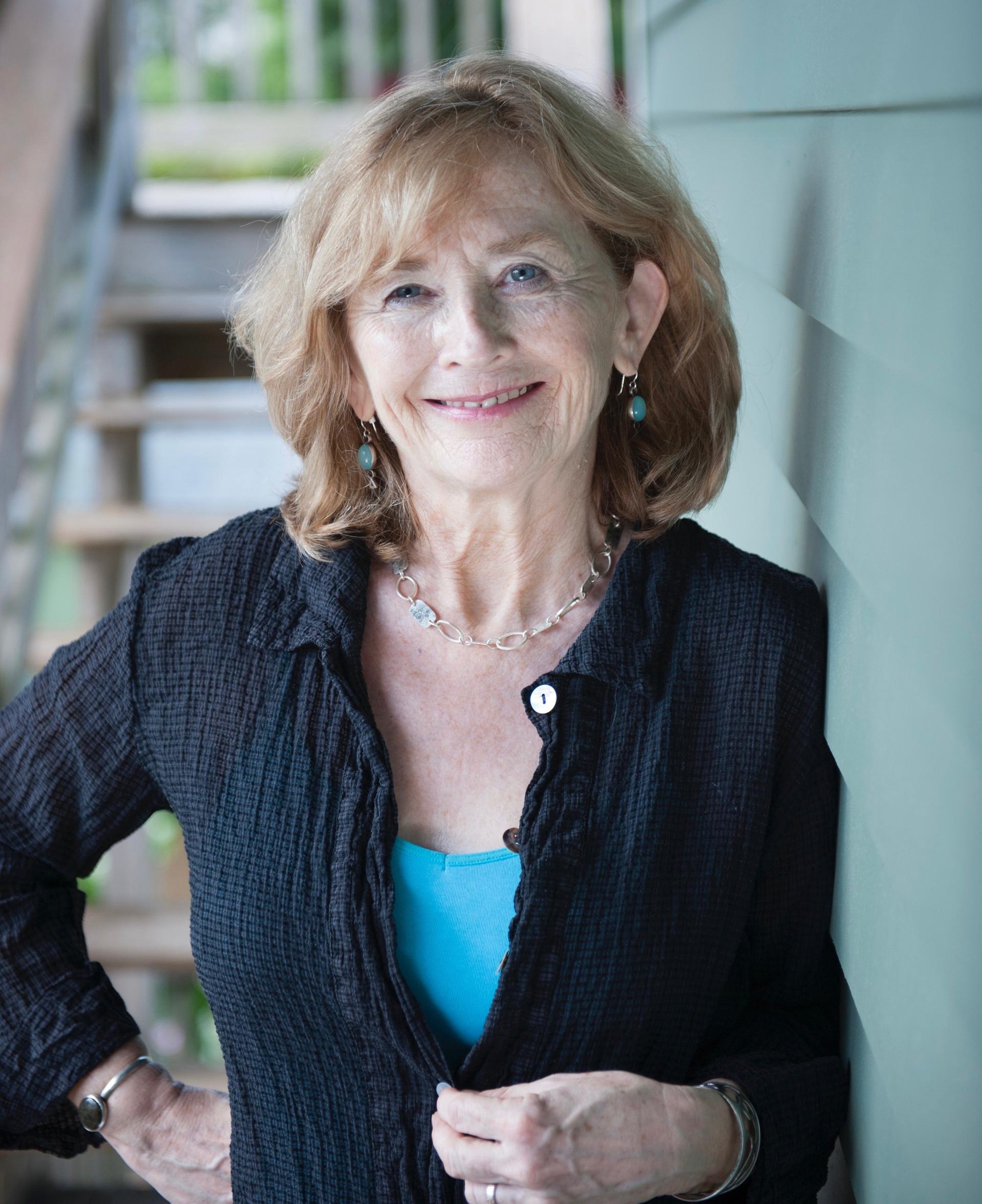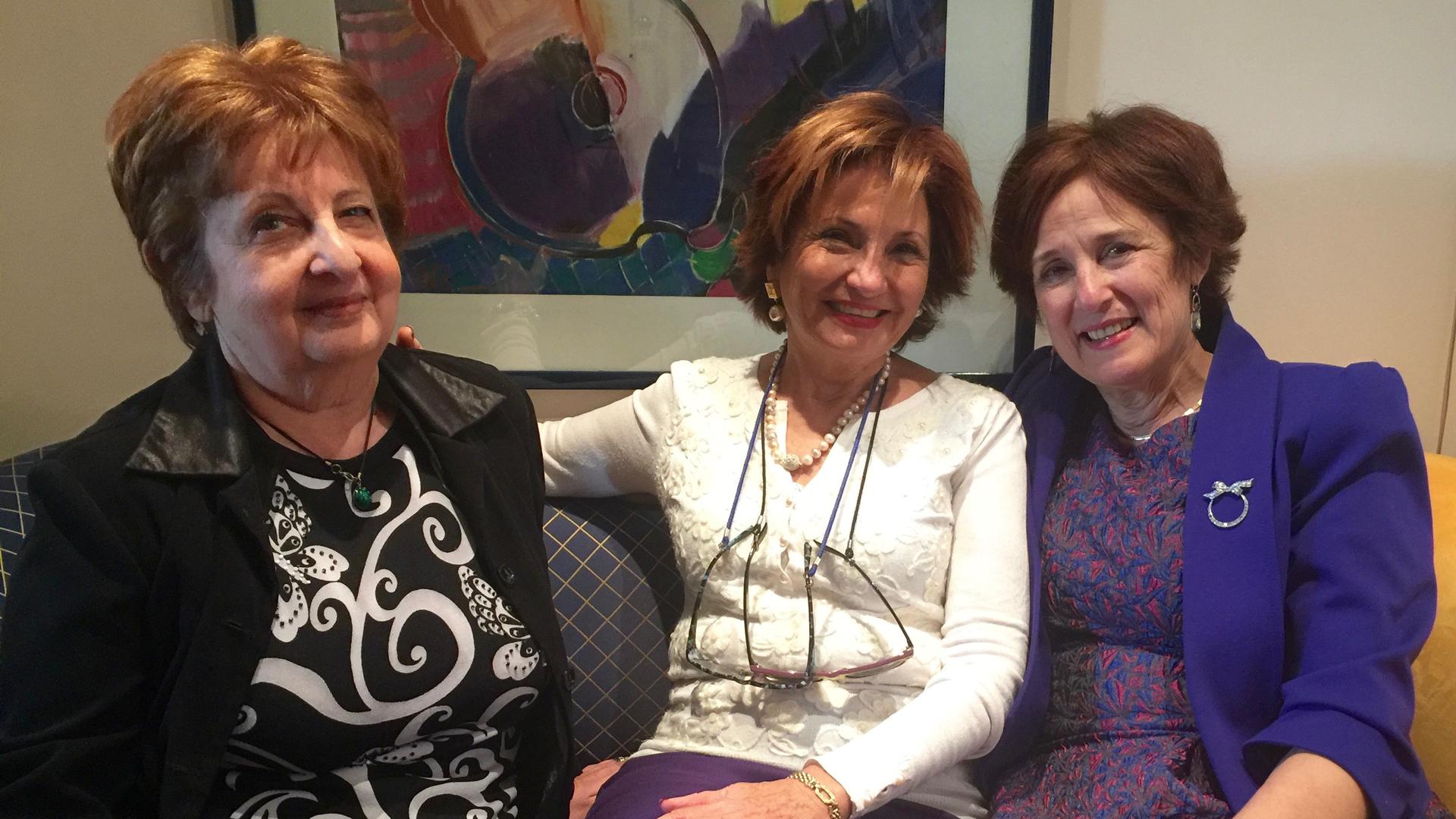Arabic has a Jewish dialect, and these women speak it
Elsie Solomon, Gladys Kattan and Lisette Shashoua at Lisette's home in Montreal.
For the latest World in Words podcast, Alina Simone tells us the unlikely story of the near-death and cultural revival of Judeo-Arabic.
Alina tracked down three Judeo-Arabic speakers in Montreal. They arrived there decades ago, following their exodus from Iraq (with a few stops elsewhere along the way).
All three grew up speaking an Iraqi variant of this Jewish-tinged Arabic. They talk about other Arabic speakers in Iraq who spoke what they referred to as "Muslim" or "Christian" forms of the language.
They tell Alina of increasing discrimination they suffered in Iraq, of escape — and of further discrimination from other Jews who looked down on them for speaking Arabic.

Judeo-Arabic is more than a dialect. New York University Hebrew and Judaic studies professor Benjamin Hary calls it a "religiolect."
But as a natural language, it's dying.
With so few Jews left in Arab countries, it is barely spoken — especially among the young.
There is, though, renewed interest in Judeo-Arabic as a cultural artifact. In 2013, an Israeli feature film about the exodus of Jews from Iraq included mainly Judeo-Arabic dialogue. And there are attempts to capture and document the language before it dies out.
All of which makes the three women Alina spoke with happy that their native tongue won't entirely vanish.
Podcast Contents
00:40 Beyond Yiddish
01:40 Canada's oldest Jewish congregation.
2:10 What Judeo-Arabic sounds like.
3:20 It's a religiolect.
4:46 The lingua franca of the medieval Jewish world.
6:05 "This is me at age 9." In Baghdad.
6:32 "You hear boom, boom, boom. You say, 'Oh, we don't go to school today. There's a revolution.'"
7:30 Under near-house-arrest.
8:42 Elsie Solomon flees across the mountains to Iran.

9:20 Stigmatized by other Jews.
10:02 "If you speak loud in Arabic in a restaurant, people will look at you."
10:45 The fate of the language rests with the diaspora.
11:30 A film about the exodus from Iraq, the first film ever made in Judeo-Arabic.
12:20 Judeo-Arabic lives on in the living rooms of Montreal.
13:00 Nina and Patrick want you and your mom to #Trypod.
15:52 There's a novelist in our midst!
17:06 Louie Cronin reads a scene about linguistics from her novel, "Everyone Loves You Back."
17:44 An academic inquiry: "Gender divergence in psycholinguistic patterning in the sadomasochistic bondage and disclpline community."
18:40 The research included "some field work."
20:00 Real or imagined research topics?
21:05 Why satirize linguistics?
You can follow The World in Words stories on Facebook or subscribe to the podcast on iTunes.
